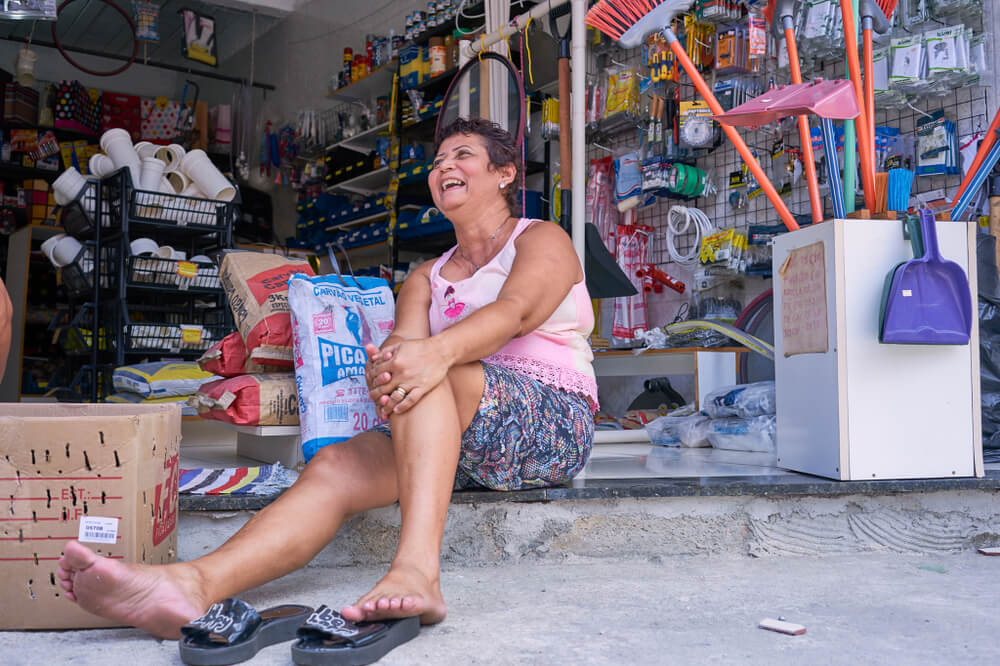Estímulo’s story stands as a compelling testament to the transformative power of blended finance in addressing some of the most pressing challenges facing small and medium enterprises, known as SMEs, in developing countries.
In the aftermath of the COVID-19 pandemic, Estímulo emerged as Brazil’s first Relief Fund, uniquely positioned to support the country’s small businesses – the backbone of employment in Brazil.
Formed through an unparalleled collaboration of leaders across sectors, including individuals, banks, corporations, foundations, and family offices, we pooled $12 million in donations. This was complemented by non-financial aid, such as pro-bono legal, technological, brand and operational support, to kickstart the project.
Brazil’s missing middle
The initiative directly responded to the ‘Missing Middle’ dilemma, where small businesses find themselves overlooked by conventional financing options. This gap is especially pronounced in Brazil, where the cost of small business credit surged dramatically, and collaterals are commonly required.
The OECD’s recently launched “Financing SMEs and Entrepreneurs Scoreboard: 2023 Highlights” report highlights the steep challenges faced by these Brazilian enterprises, including a drastic increase in interest rates, coupled with widening interest rate spreads. Such an environment, also present in other developing countries, underscores the critical need for innovative financing solutions.
From the start, Estímulo’s approach was clear: to prevent the closure of countless small businesses and mass unemployment by offering both financial and non-financial resources with a digital and data-driven approach. Since its launch, the fund has disbursed $40 million in credit, supporting over 3,400 small and medium enterprises, predominantly in low-income regions. These companies, on average, generate 10 jobs and experienced a 27% growth after one year (compared to a 15% growth of companies that did not receive the financial support), thereby contributing significantly to job creation and economic growth in underserved communities.
Moreover, financial support is complemented with comprehensive training, leveraging data intelligence to match entrepreneurs with tailored business training, mentorship programs, technical assistance, and digital solutions, with partners such as Meta, Google, and Sebrae. This addresses the underlying issues contributing to the perceived riskiness of small businesses.
This collective effort demonstrated the potential of private initiative in creating sustainable solutions for economic challenges, laying the groundwork for what has become a long-term support mechanism for Brazil’s economic recovery.
Blended finance in Brazil
In 2021, leveraging the success of its initial model, Estímulo transitioned into a blended finance structure through the creation of a credit rights investment fund and broadened its financing reach, attracting both philanthropic contributions and investment capital seeking financial returns.
Blended finance refers to the strategic use of development finance and philanthropic funds to mobilize private capital flows towards high-impact projects that aim to achieve sustainable development goals (SDGs) but might not otherwise attract investment due to high risks or low returns. By combining different sources of finance, blended finance reduces the risk profile of investments and makes them more attractive to private investors, thus unlocking capital for critical sectors in emerging and frontier markets.
This shift highlighted Estímulo’s pioneering role in the Brazilian financial landscape, showcasing the effectiveness of blended finance in fostering economic resilience and sustainable development. By blending philanthropic and investment capital, the impact fund offers small businesses more favorable terms than those typically available through traditional financial institutions, which often categorize these businesses as high-risk.
We have not only provided essential financial support but have also been at the forefront of innovating new product offerings with impact lenses. Noteworthy initiatives include Estímulo Mulheres, aimed at supporting women-owned businesses, and Estímulo Verde, sustainability-linked loans encouraging sustainable practices among small businesses, such as green energy and recycling. These efforts exemplify an impact-driven approach, maximizing socio-environmental impact rather than financial return, and, therefore, are difficult to finance solely through the private market.
As we navigate ongoing economic, environmental, and social hurdles, the role of blended finance in crafting sustainable solutions has become increasingly crucial. As it continues to evolve, Estímulo stands as a testament to the transformative power of collaborative, impact-focused finance in overcoming modern socio-environmental challenges.
Lucas Conrado is head of institutional relations and legal at Estímulo.











